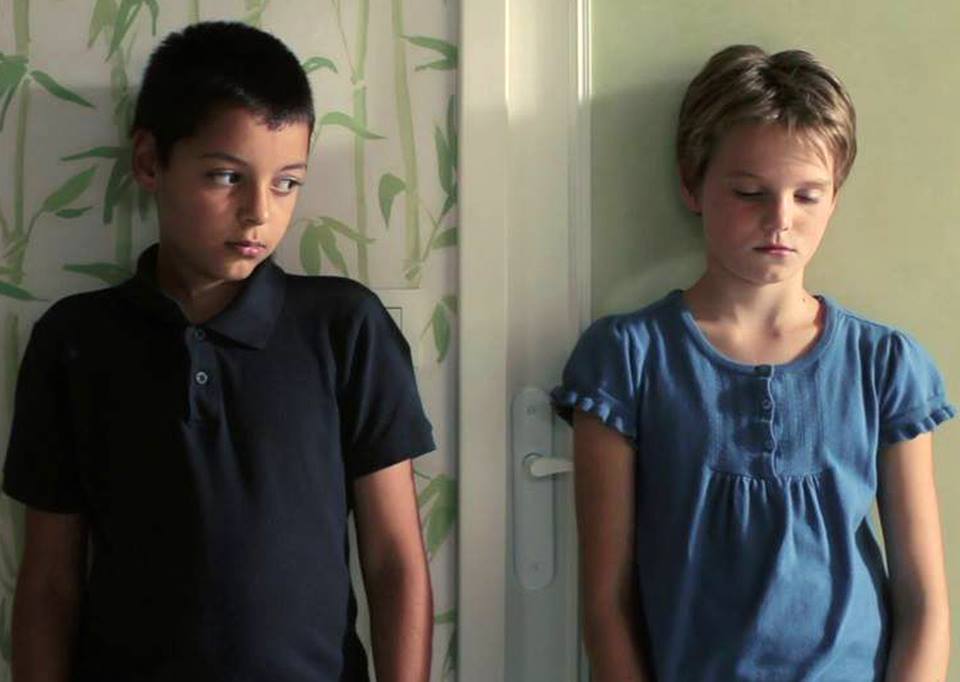curator's noteFor the MUBIVIEWS debut film we wanted to challenge our writers by discussing the sensitive topic of gender exploration, which is so rarely seen from a child’s point-of-view. The film in question is French social realist drama TOMBOY (Céline Sciamma 2011) about a ten-year-old tomboy who passes as a boy to her friends throughout the course of the summer. The unfamiliar setting for the protagonist Laure (Zoé Héran) allows her to safely experiment with her gender through her persona Mickäel. The film tackles isolation, identity and friendship in a tone which MUBI itself describes as ‘delicate and insightful’ highlighting the innocence behind the film. PLAYING THE BOYMATTHEW WEARSTOMBOY (Céline Sciamma 2011) is a film that documents the gender exploration of Laure (Zoé Héran), a ten-year-old girl who adopts the name Mickäel after moving into a new neighbourhood during the summer holidays. The film tackles an issue that has been displayed on our screens in such a dark manner time and time again with films such as the uncompromising realist drama BOYS DON’T CRY (Kimberly Peirce 1999) and more recent romantic biographical drama THE DANISH GIRL (Tom Hooper 2015). TOMBOY instead opts for a more light-hearted, almost consequence-free approach, but offers as poignant a social commentary as any film of its type. The light-heartedness is completely intentional. The question of whether Laure is merely experimenting or whether this is something more is asked throughout the film. The hot, sweaty, summer that never ends backdrop acts as a narrative tool to foreground the idea that this all may just be a phase for Laure. As the summer draws to a close, so does her exploration of gender. It is often difficult to distinguish between what is sexual exploration and what is in fact play. The scene in which Laure's younger sister Jeanne (charmingly played by Malonn Lévana) applies make-up to her older sibling blurs this line even further as we are made aware that Laure’s actions may just be light-hearted childlike behaviour. As Laure’s mother parades her across town in a dress, her acknowledgement “I don’t mind you playing the boy, it doesn’t even make me sad” makes it hard to look at TOMBOY as anything other than a commentary on transgenderism. The film makes links between play and real life, offering an insight into how “playing the boy” as a child is socially acceptable but anything more than this and it becomes a serious, almost punishable offence. TOMBOY is a story that could have easily gone down a melancholy route but it would have lost its real impact. It really is refreshing to see that this is a child who has been nurtured by her family; a child who has not experienced a broken upbringing. This is a film that challenges these narratives approaches and, in doing so, reveals a debate that is really rather unique. Every day this week a different writer will provide their perspective on our MUBIVIEWS film and each post will be open to comments from our readers. Watch TOMBOY on mubi.com until 3 April 2017 and join the discussion!
2 Comments
Em Houghton
30/3/2017 01:40:21 pm
It is hard to ignore the commentary on transgenderism in the film, but you're accurate in the fact that it is so much more light-hearted than what we're used to seeing on screen when films tackle stories of gender; it really does make Laure's exploration of her gender even more innocent and childlike which is what gives this film its charm!
Reply
Summer Manning
30/3/2017 01:42:04 pm
Some excellent references to transgender characters in other media. It's quite troubling to see the proportion of movies about trans characters feature harrowing scenes of trans violence. While it was mostly light-hearted, watching the other children force Laure to reveal her sex is almost as difficult to watch as the "corrective" rape scene in Boys Don't Cry.
Reply
Your comment will be posted after it is approved.
Leave a Reply. |
MUBIVIEWSOne MUBI film, five perspectives, endless possibilities. Archives
July 2017
Categories
All
|



 RSS Feed
RSS Feed
